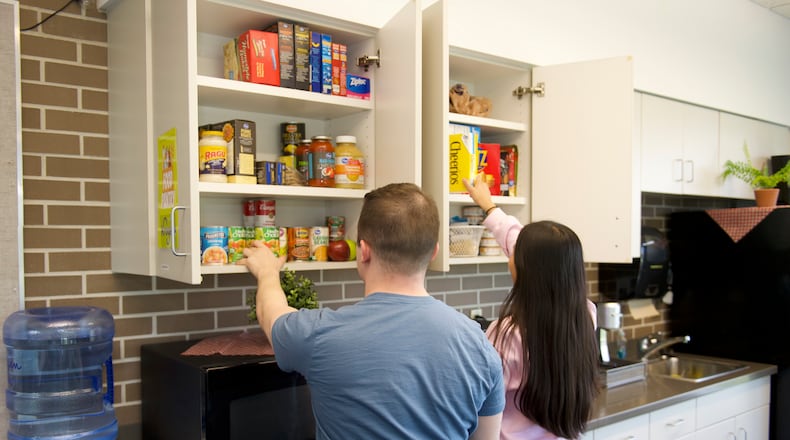The food pantry started in 2021 after Jeff Bates, dean of the school of pharmacy, learned that students across the U.S. were sometimes unable to access meals.
The concern for students’ access to food nationwide is what led the university’s pharmacy faculty to start the food pantry and to supply those students with needed gas cards, gift cards and nonperishable food items.
“Sometimes students can only afford to eat two meals a day, which isn’t always enough,” Bates said. “Additionally, graduate students can sometimes fall through the cracks since they are typically living off campus without a meal plan for the first time.”
Nearly 30% of college students experience food insecurity at some point during their college years, according to the Journal of Health Affairs. Although many undergraduate students living on campus have meal plans, including those at Cedarville, some still experience that food insecurity.
This research helped motivate Kroger to provide funding for food options to stock the pantry. They will provide free, nonperishable foods throughout the year that any pharmacy students can take whenever needed.
“They’re a great pharmacy partner, especially in helping us fight food insecurity,” Bates said. “We couldn’t be more grateful for their support.”
Bates said modeling whole-person care for pharmacy students likely results in graduates who strive to meet all their patients’ needs once they become pharmacist.
The school of pharmacy’s mission is to help student pharmacists assess and meet the health needs of diverse populations through patient-centered care, servant leadership, ethical decision-making, inter-professional collaboration, scholarly innovation and continued personal and professional development.
About the Author

